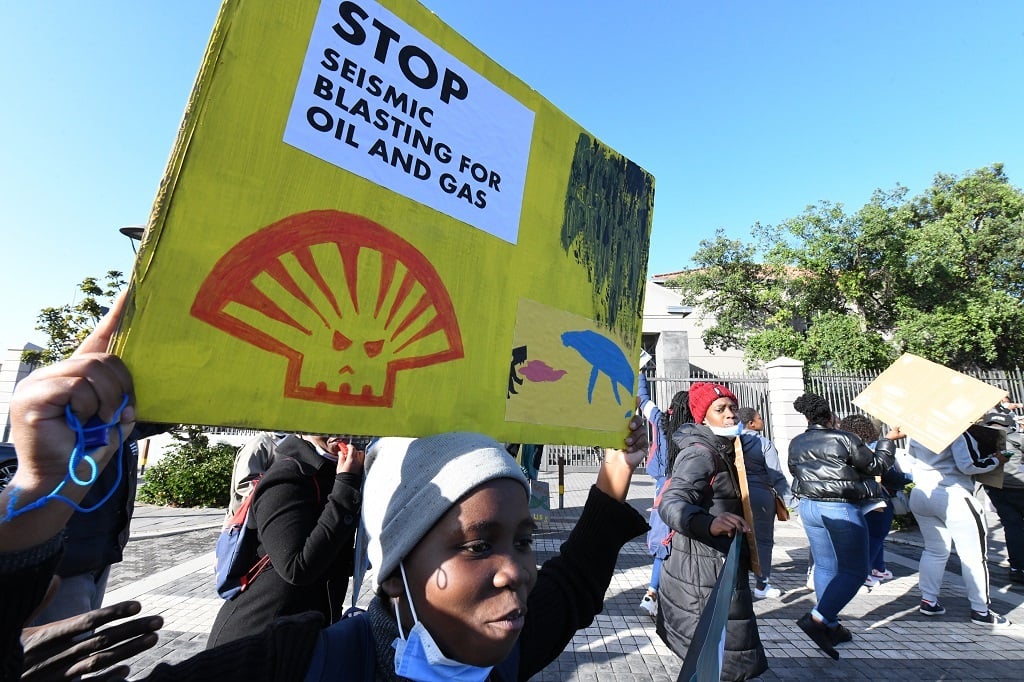
Shell and Mineral Resources and Energy Minister Gwede Mantashe on Thursday applied for leave to appeal a ruling which effectively blocked a seismic survey off the Wild Coast.
Earlier this month, the Makhanda High Court set aside a decision by the minister to grant Shell the exploration right, and the two subsequent renewals of the right.
Impact Africa, to which the exploration right was originally granted and later transferred to Shell, also applied leave to appeal the ruling two days earlier.
The court found several procedural issues in the granting of the exploration right, particularly pertaining to adequate consultation with Wild Coast communities who had lodged the initial application. Greenpeace Africa and Natural Justice, later joined the application.
"Shell, Impact Africa and the minister are seeking leave to appeal on various grounds," a joint statement from Natural Justice and Greenpeace Africa read.
"… They argue that the public had been properly notified of the decision to grant the exploration right and that the court should not have allowed the decision to be challenged so long after it was made."
They also contend the court's findings were based on procedural unfairness. They argue the court incorrectly applied the precautionary principle - this is when a precautionary approach is taken when the scientific evidence of potential environmental harms is uncertain. The court's application of the principle saw the seismic survey stopped entirely, instead of proceeding with mitigation measures in place.
They each also argue that the court was wrong to "amalgamate" exploration with the production of oil and gas when it comes to climate change considerations.
In its papers, Shell puts forward that it would be "premature" for climate change impacts to be considered at the exploration stage.
It added that if there were a policy decision at Cabinet level not to exploit hydrocarbons (oil and gas) for energy, then it would make sense to object to granting of an exploration right if climate change were not adequately considered:
Wilmien Wicomb, a lawyer for the Legal Resources Centre - which represented the applicants had anticipated that Shell and government would appeal the ruling.
One of Shell's arguments during the hearing on the matter in May was that the applicants (or the Wild Coast communities) had not exhausted internal remedies before approaching the courts.
But the applicants' lawyers had defended their reasoning to approach the courts by citing a tweet in which Mantashe describes objections to the developments of the upstream petroleum industry as "apartheid and colonialism of a special type, masqueraded as a great interest for environmental protection."
“We consider the objections to these developments as apartheid and colonialism of a special type, masqueraded as a great interest for environmental protection.” - Minister Mantashe pic.twitter.com/RKVECLuf9j
— South African Government (@GovernmentZA) December 9, 2021
To the Wild Coast communities, that signalled they would not have success in approaching the minister to appeal the exploration right through internal processes, as he appeared biased toward Shell, lawyers argued in court. This essentially left the applicants without further internal remedies, which is why they lodged a legal challenge.
But Shell puts forward, in its leave to appeal papers, that the minister's remarks on Twitter cannot "absolve" the applicants from their duty to exhaust internal remedies. Shell also notes that the minister's remarks were made after the litigation was launched, and not before.
Shell, Impact Africa and the minister believe they have reasonable chance of success in the appeal, give that multiple grounds have been established.
This article was updated at 20:30 on Thursday 22 September with additional details throughout.

